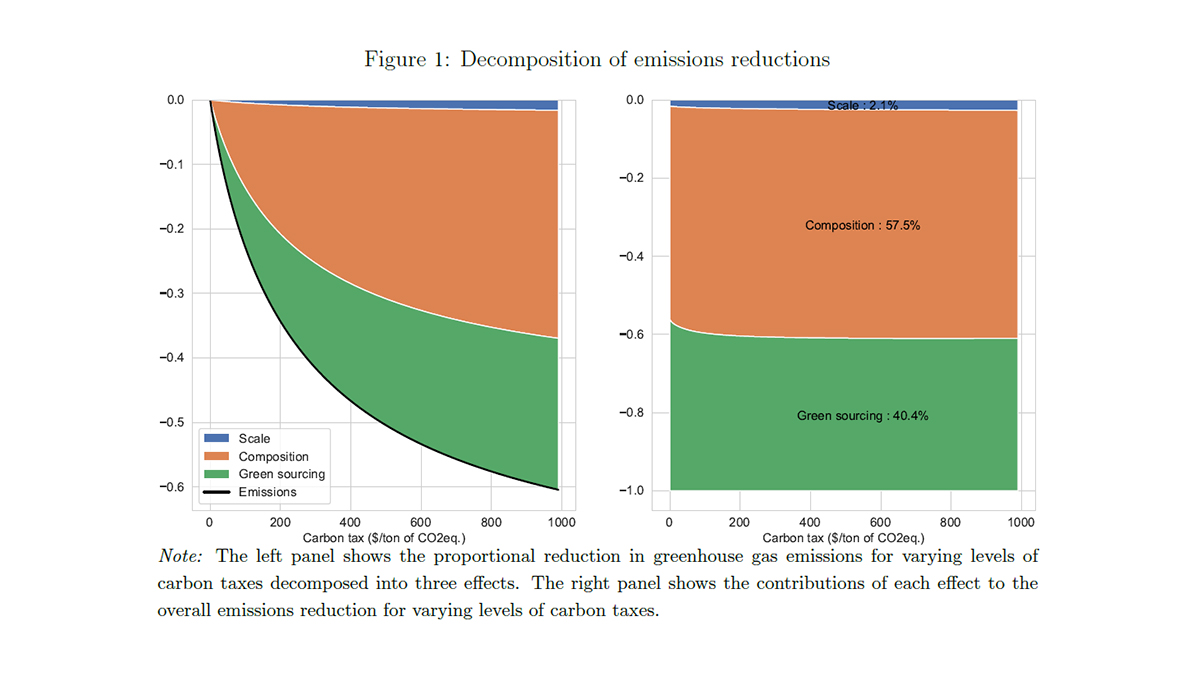International trade is often viewed with scepticism when it comes to climate change. Many people associate trade with transport, and transport with emissions from trucks, planes, or cargo ships. As a result, buying green is often equated with buying local, leading to calls to limit international trade in the name of protecting the planet.
This narrative, while intuitive, is fundamentally flawed. International trade can, in fact, be a powerful part of the solution to the climate change problem — if effective climate policies are in place. This is the point we make in a recently issued WTO staff working paper, which builds on research I conducted at the University of Zurich before joining the WTO.
The key argument is straightforward: global greenhouse gas emissions decline when economies specialize in industries where they have relatively low emissions, just as global real incomes rise when economies specialize in industries where they have relatively high productivity. Put differently, there are environmental gains from trade when economies specialize based on their environmental comparative advantage, just as there are economic gains from trade when economies specialize based on their economic comparative advantage.
The crucial difference between these two types of gains is that economic gains occur naturally, as a result of market forces, while environmental gains require supportive climate policies to materialize. The textbook example would be a global carbon tax, a price paid per ton of CO2 emitted, which helps firms and households to internalize the environmental impact of their production and consumption choices.
In the working paper, we simulate the effects of introducing a global carbon tax. Our benchmark scenario features a uniform carbon tax of US$ 100 per ton of CO2 equivalent (tCO2eq) on all goods in all economies. Yet, our main finding holds across a wide range of carbon tax rates and coverages. The key result is that over one-third of the total reduction in greenhouse gas emissions brought about by the carbon tax stems from the environmental gains from trade. In other words, trade acts as a powerful force multiplier for climate policies.
To pinpoint the environmental gains from trade, we decompose the greenhouse gas emission reductions brought about by the carbon tax into three effects. First, the tax increases costs across the board, leading to a reduction in overall economic activity (the scale effect). Second, the tax raises the relative prices of goods from carbon-intensive sectors, prompting a shift in economic activity towards greener sectors (the composition effect). And third, the tax makes goods from high-emission economies relatively more expensive, resulting in a shift in economic activity towards greener economies (the green sourcing effect). While the scale and composition effects also occur in a closed economy that does not participate in international trade, the green sourcing effect leverages a gain that is only available with international trade, thereby capturing the environmental gains from trade (see Figure 1).

The key policy takeaway is that climate policies should be designed with their trade implications in mind. It may be tempting to assume that some collateral damage to the trading system is an acceptable cost in the fight against climate change. However, this overlooks a crucial fact: open trade is essential for making climate policies fully effective. The two must work hand in hand.
Does this mean that transport emissions are not important? Not at all. Decarbonizing the transport sector is, of course, critical. However, transport emissions represent a small share of overall emissions, and there is considerable variation in production emissions across economies. As a result, importing can be the greener choice if lower production emissions abroad more than offset higher transport emissions. Specialization according to environmental comparative advantage effectively scales this green sourcing approach to the global economy.
Does this mean that the environmental gains from trade mainly benefit advanced economies that have already made substantial progress in decarbonizing? Far from it. Many developing economies are situated in regions with abundant sunshine or strong winds, meaning that they have potential to generate significant amounts of green energy. This presents opportunities for these economies to develop a green comparative advantage in energy-intensive production. Our findings, therefore, point to a more inclusive perspective on sustainable development, highlighting how trade, development and sustainability efforts can complement each other.
Reach us to explore global export and import deals